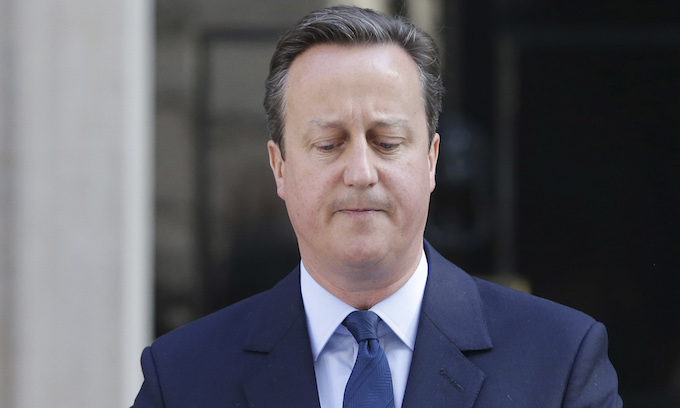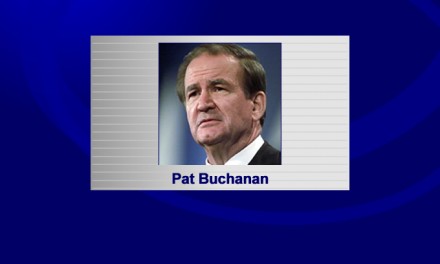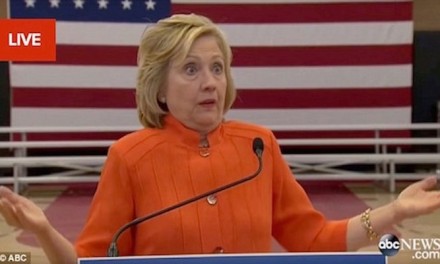Republicans can only imagine what it would feel like to win four national elections in a row — wielding executive and legislative power for more than a dozen years.
Franklin Roosevelt, who died early in his fourth presidential term, had that kind of tenure.
He used it to build the modern welfare state.
What could conservatives accomplish with an opportunity like that?
The answer from across the Atlantic is: not much, if Republicans make the mistakes Britain’s Conservative Party has made since 2010.
That year the Conservatives returned to power after more than a decade of Labour Party dominance, though the Tories needed help from the UK’s third-largest party, the Liberal Democrats, to form a government.
The Tory-led coalition became an outright Conservative majority in 2015, and although the party was reduced to just a legislative plurality after the 2017 election, the most recent contest, in 2019, saw the Conservatives win a commanding parliamentary margin of nearly 50 seats.
Conservatives also won the largest percentage of the popular vote that any party had taken since the 1979 election that made Margaret Thatcher prime minister.
Yet today the Conservatives fully expect to lose the next election — and what’s more, many of them say they deserve to.
The party’s problems trace right to the beginning of its current lease on power.
David Cameron, prime minister from 2010 to 2016, wanted the party to be something other than what its voters demanded.
The voters wanted Brexit.
Cameron allowed a referendum on Britain leaving the European Union but campaigned to remain in it.
An economically globalist, socially liberal Conservative Party was Cameron’s dream: He was the prime minister who gave Britain same-sex marriage.
It was a dream that meant socially liberal voters would have three parties to choose from — Conservatives, Labour or Lib Dems — and social conservatives would have none.
Cameron hoped to appeal to young voters and urban professionals, and the GOP also needs to improve its margins with those groups.
But Cameron’s attempt to outflank the other parties with gay marriage failed because the same young Britons and educated urbanites that social liberalism was supposed to attract were repulsed by the economic nationalism of the Conservative Party’s base.
There are far fewer social conservatives in Britain than there are in America. But what good did it do Cameron’s party to write them off?
And only with the utmost reluctance did the Conservatives attempt to deliver what economic nationalists asked of them.
Cameron resigned after the Brexit referendum, merely to be replaced by another Tory leader, Theresa May, who had also opposed Brexit.
Not until the party finally embraced Brexit wholeheartedly with Boris Johnson as leader did it reap the electoral rewards of being on the more popular side of the issue.
Johnson delivered Brexit — and the 2019 landslide.
But that was it: Johnson had no other populist cards to play beyond Brexit and his larger-than-life, almost Trump-like personality.
Without Brexit, Boris Johnson was just another David Cameron, socially liberal and more interested in green regulations than blue-collar jobs.
Johnson imposed strict COVID-19 lockdowns — then came under fire for violating the restrictions himself.
If Johnson didn’t know where to take populism after Brexit, the party as a whole had absolutely no idea where to go after COVID-19 scandals toppled Boris.
The party ever so briefly made Liz Truss prime minister, hoping she would be another Thatcher.
But Thatcher had been a social conservative as well as a tax-cutter, and when markets reacted badly to Truss, she had nothing to fall back on — not populism, economic nationalism or social conservatism.
Now Rishi Sunak is the Conservative prime minister, not because he has any strong right-of-center philosophy but rather because he lacks one: He’s acceptable enough to enough of the party’s factions; he’s everyone’s second choice.
And so, predictably, his party is set to be the second choice at the next election, with Labour retaking power not on account of its own merits but because the Tories stand for nothing and have succeeded in next to nothing.
Unless the GOP learns from the Tories’ follies, it faces the same fate.
One difference is that personally liberal Republicans sometimes have the smarts to deliver what socially conservative voters want — Donald Trump is a case in point.
But Republicans, including Trump, are in danger of winding up like Boris Johnson if they merely react to populism and nationalism, instead of charting a future beyond voters’ present discontents.
The Tories treated Brexit like the end of the story, when really it was just beginning.
Social conservatism and something like populism are the starting point for right-leaning politics today.
That doesn’t mean forgetting what Ronald Reagan and Margaret Thatcher got right or ignoring the urban demographics of tomorrow.
But it means that conservatives must first do the job they’re elected to do — and then do more.
—
Daniel McCarthy is the editor of Modern Age: A Conservative Review. To read more by Daniel McCarthy, visit www.creators.com
COPYRIGHT 2023 CREATORS.COM



















Never give dems, liberal or otherwise, an inch. THEY WILL ALWAYS DEMAND MORE.